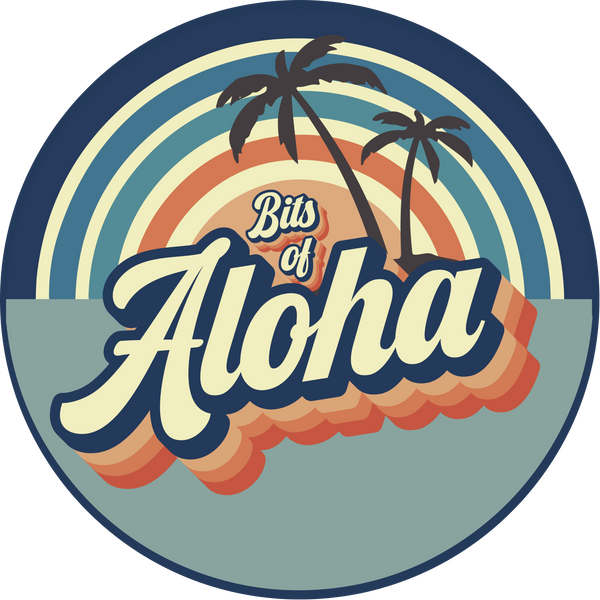
Liberated Brands’ Bankruptcy Shakes Surf Retail in Hawaii
Share
The surf world has been hit with a major shake-up. Liberated Brands—the company that operated the North American retail businesses for iconic surf labels like Billabong, Quiksilver, and Volcom—has filed for Chapter 11 bankruptcy protection. The move has sent ripples through the global surf industry, leading to the sudden closure of all U.S. retail stores associated with these legendary brands.
For Hawaii, where surf isn’t just a sport but a way of life, this news cuts deep. These brands have long held a presence on island shores, woven into the fabric of beach culture and island fashion. Their closures aren’t just about empty storefronts—they’re a sign of the changing tides in surf retail, and a reminder that even the most iconic brands must evolve or be swept away.
But in every ending, there’s space for something new to rise. And in Hawaii, that next wave may already be forming through homegrown, online labels like Bits of Aloha.
What Happened to Liberated Brands?
Liberated Brands managed the North American retail and e-commerce operations for Billabong, Quiksilver, and Volcom—three of the most recognizable names in surf and skate apparel. On the surface, these brands symbolized the golden era of surf culture, dominating shopping malls and beach towns alike throughout the '90s and early 2000s.
But behind the scenes, the retail landscape has been shifting rapidly. E-commerce competition, pandemic-related supply chain struggles, and shifting consumer values all contributed to Liberated Brands' financial troubles. Their Chapter 11 bankruptcy filing signals an attempt to restructure debt while shutting down underperforming stores. Unfortunately, the result has been the complete closure of all U.S.-based retail locations tied to these iconic brands.
Why This Matters for Hawaii
Few places on Earth are as deeply connected to surf culture as Hawaii. The birthplace of modern surfing, Hawaii isn’t just where surfing began—it’s where it lives, breathes, and defines community. Stores selling surf apparel are not just retail hubs; they are cultural touchstones for residents and tourists alike.
For decades, Billabong and Quiksilver stores in places like Waikīkī, Lahaina, and Haleʻiwa have been more than just places to pick up boardshorts or rash guards—they’ve been lifestyle beacons. Their closures represent more than the loss of a brand presence; they signal a disruption in how surf fashion is shared, consumed, and celebrated in the islands.
And with fewer physical stores catering to surf style in Hawaii, the void creates both uncertainty—and opportunity.
The End of an Era… and the Rise of New Island Voices
In many ways, the downfall of global surf giants opens the door for more authentic, grassroots surf brands to take center stage. For years, critics have noted the growing disconnect between legacy surf brands and the communities they once represented. As their imagery became more polished and corporatized, their roots in the actual surf culture—particularly that of Hawaii—began to blur.
This is where local labels can thrive. Emerging brands that truly understand the cultural importance of Aloha, that live the lifestyle and design with heart, are better positioned than ever to connect with consumers seeking meaning behind their wardrobe.
At Bits of Aloha we're not trying to replicate the global surfwear model. By centering local culture, insider iconography, and a genuine connection to place, we hope to show what the future of Hawaiian fashion can look like: fresh, rooted, and real.
Surf Fashion Is Evolving
The modern surfwear consumer wants more than logo-heavy tees and mass-produced board shorts. They’re seeking designs that feel personal, connected to the culture, and relevant to their lifestyle—whether they’re riding waves at Diamond Head or sipping cold brew in Kaimukī.
The bankruptcy of Liberated Brands is a wake-up call for the surf fashion industry: evolve or disappear. Today’s consumers value authenticity, sustainability, and storytelling. They want to know where their clothes come from, who made them, and what values the brand represents.
The Future of Surf Retail in Hawaii
While it's sad to see the shuttered doors of familiar surf shops, the reality is that Hawaii has never been dependent on outsiders to define its identity. This is a place that has always created its own style, its own voice, its own path.
The next chapter for surf retail in Hawaii won’t be written by big mainland corporations—it will be written by local visionaries who live with Aloha in everything they do. Expect to see more boutique stores, pop-up markets, and e-commerce brands rise to fill the gap. Expect community-driven events that showcase homegrown design. Expect fashion that feels like Hawaii because it comes from Hawaii.
Final Thoughts: Aloha Isn’t a Trend—It’s a Way of Being
The collapse of Liberated Brands may mark the end of an era for mainstream surf retail, but in Hawaii, it’s simply a tide shift. The surf culture here is resilient, evolving, and deeply tied to community and place. Out of the closures and corporate exits, new energy is rising—designers, brands, and creatives who understand that true island style isn’t manufactured—it’s lived.
Because in Hawaii, surfing isn’t just about riding waves. It’s about honoring where you come from—and influencing where you’re going.
Keywords:
Hawaii, Aloha, surfing, Hawaiian fashion, Billabong, Quiksilver, Volcom, Liberated Brands, surf shops, retail closures, Bits of Aloha, surfwear industry
